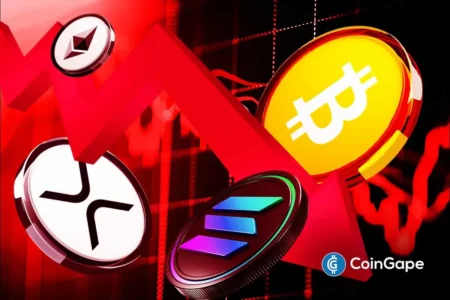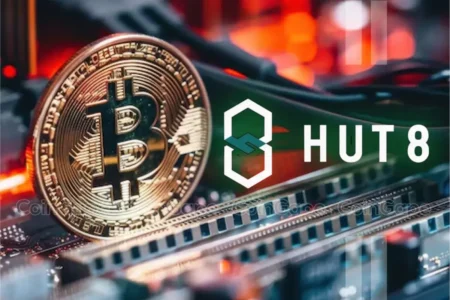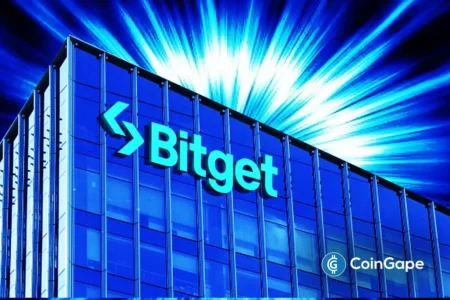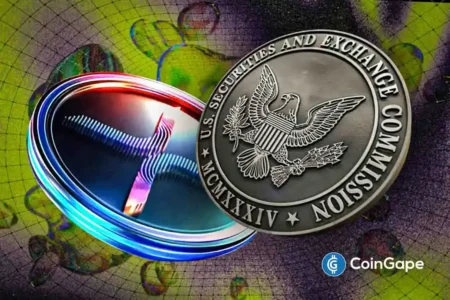The Future of Crypto Governance: Merging AI and Decentralization
In the early days of cryptocurrency, the promise of a financial revolution came hand-in-hand with a political one. Bitcoin’s first block famously featured a headline about failing banks, encapsulating the desire for a decentralized alternative to traditional banking systems. Ethereum’s founders envisioned "programmable institutions" that would allow for transparent, decentralized governance. However, a decade later, such goals remain largely unfulfilled. Current on-chain governance often resembles outdated Web 1.0 message boards attached to multisig wallets, with slow decision-making, fragmented factions, and minimal participation rates. A dual crisis looms: blockchains can’t govern themselves effectively, and public trust in existing democratic structures continues to dwindle, exacerbated by the rise of artificial intelligence (AI), which raises new concerns about misinformation and legitimacy.
The instinctive reaction might be to keep AI out of governance, but this approach fails to recognize the shortcomings of human decision-making in collective environments. Humans often struggle with filtering information, weighing trade-offs, and maintaining engagement, leading to voter apathy. In contrast, AI can excel in these areas, potentially offering a solution to the stagnation in crypto governance. By serving as a decision-making aid, AI can empower users to actively participate in governance processes, aligning with the original vision of decentralized, transparent citizen-controlled institutions.
The Role of AI in Enhancing Political Participation
As it stands, even the most dedicated token-holders find it nearly impossible to engage fully with every governance proposal. This disconnect leads to decisions dominated by small, self-selected elites, while broader community voices remain unheard. AI technologies—especially large language models—can streamline participation by digesting extensive discussions into concise summaries, allowing users to engage meaningfully without being overwhelmed. Imagine a personal governance avatar that understands individual preferences and values, facilitating better decision-making aligned with user beliefs. Such avatars could flag proposals that violate personal values, summarize arguments in an accessible manner, and recall past voting rationale, ultimately increasing participation rates and fostering greater legitimacy within governance frameworks.
Addressing Identity Challenges in Governance
One of the significant challenges in crypto governance is the issue of identity verification, with the existing "wallet ≠ person" framework allowing individuals to exert disproportionate influence through Sybil attacks—creating multiple wallets to manipulate voting outcomes. Traditional identity proofs, like biometric scans, can centralize power or invade privacy. An AI guardian could address this issue by utilizing unsupervised anomaly detection to identify synchronized voting behaviors and flagging suspicious accounts without relying on a central registry of identities. This approach would empower human moderators to make informed decisions about voting legitimacy while protecting individual privacy rights.
Innovative Governance Models: NEAR’s House of Stake
Innovative governance models like NEAR’s House of Stake are exploring new dynamics in crypto governance. By granting non-human agents the same proposal and voting rights as large token-holders, NEAR aims to promote inclusivity and diminish the influence of whale-patterned dominance. This system allows small token holders to pool their votes under an auditable AI agent, thus redistributing power. With a future council including seats for community-governed AI agents, debating proposals can transition to a format that is faster, fairer, and more comprehensible, enhancing overall governance efficacy.
Overcoming AI Governance Challenges: Alignment, Bias, and Opacity
Three significant challenges arise when considering AI-mediated governance: alignment, bias, and opacity. Ensuring an AI agent acts in the best interest of its users requires stringent alignment protocols, including a requirement for transparency in its decision-making rationale. Running multiple models on diverse datasets helps to mitigate bias, revealing discrepancies that prompt deeper inspection from the community. Lastly, transparency of the AI’s internal reasoning and memory logs is crucial to combat fears surrounding black-box algorithms, offering verifiable records of how decisions are made and ensuring accountability.
The Strategic Benefits of AI in Governance Experiments
Blockchains possess unique characteristics—pseudonymous identities, programmable capital, and rapid upgrade cycles—that provide an optimal environment to test AI governance solutions. These “economies in a box” risk localized failures but also offer the potential for meaningful innovations in governance structures. If successful, lessons learned could extend beyond crypto networks to influence broader institutional designs at municipal and national levels. By exploring the synergistic relationship between AI and cryptography, crypto governance can potentially evolve beyond oligarchy toward a more participative and transparent model.
In summary, the convergence of AI and decentralized governance may seem utopian, but it is also a logical progression in the exploration of democratic ideals. Just as the printing press revolutionized communication and governance in its day, the combination of blockchain technology with AI can facilitate informed, direct democracy on a global scale. As we strive for innovative solutions to governance challenges, there is much at stake for both cryptocurrency users and the broader democratic landscape.
Disclaimer
This article is an opinion piece and should not be considered financial advice. Conduct thorough research and consult with financial professionals before making any investment decisions in cryptocurrencies. The author and publication hold no responsibility for individual financial losses.
















